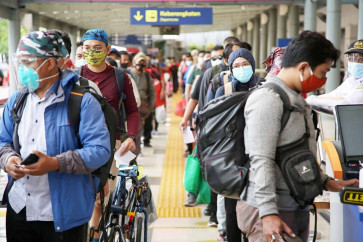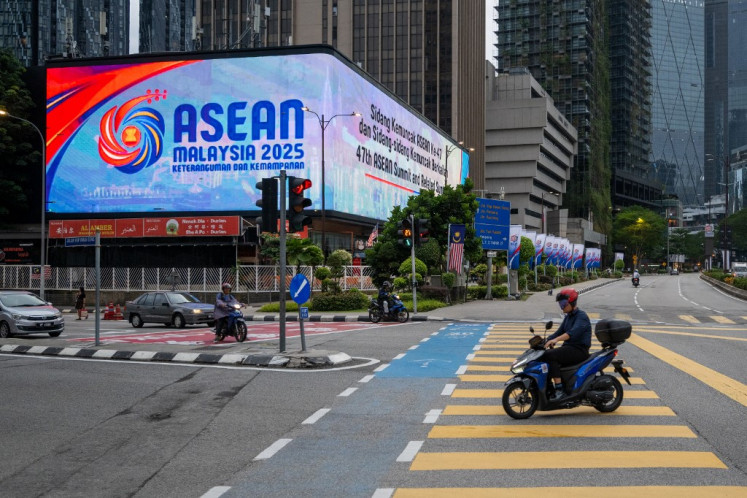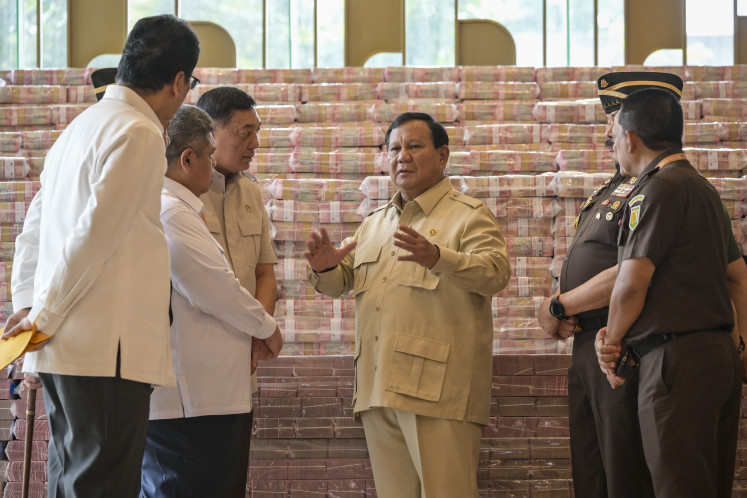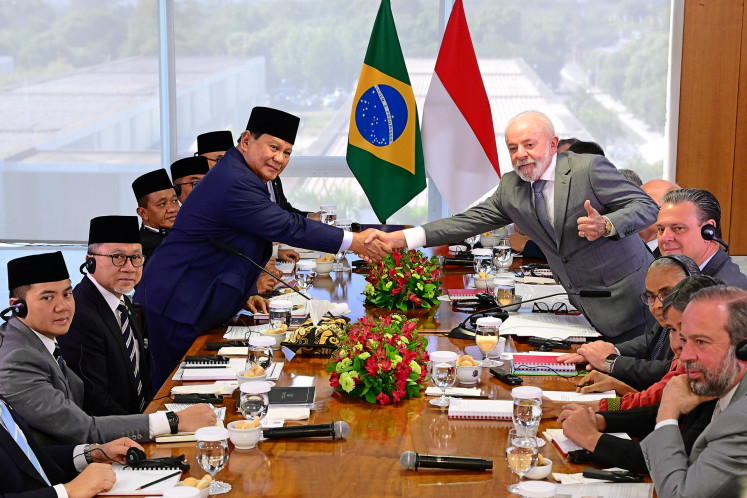Popular Reads
Top Results
Can't find what you're looking for?
View all search resultsPopular Reads
Top Results
Can't find what you're looking for?
View all search resultsEast Asia needs a strong Japan
A change of head of government in Japan no longer surprises anyone
Change text size
Gift Premium Articles
to Anyone
A
change of head of government in Japan no longer surprises anyone. Two weeks ago, Yukio Hatoyama resigned as prime minister and was replaced by former finance minister Naoto Kan. Indeed, over the last four years, Japan has had several prime ministers. The victory of Japan’s Democratic Party (DPJ), which brought an end to the domination of Japanese politics by the Liberal Democratic Party (LDP), failed to ensure the stability of government in Japan.
Protracted uncertainties in Japanese politics have further undermined the country’s efforts to regain its status as a significant player in East Asia.
As the region is being transformed by the rise of China and the arrival of India as two new major powers, Japan has struggled to prove its relevance in the regional strategic equation. It is true that Japan remains an important economic power in the region and beyond. Yet, East Asia has now become a region shaped by countries with both economic and strategic significance.
Even as an economic power, Japan is being challenged by China as the second largest economy in the world, and the prospect for Japan to revitalize its economy remains uncertain.
In fact, Prime Minister Kan even warned that Japan could face a similar fate as Greece if it did not resolve its mounting national debt, which has reached 218.6 percent of its gross domestic product in 2009. Aware of the danger, as a new leader, Prime Minister Kan has promised to restore Japan’s economic vitality and aimed for more than 2 percent of annual growth by 2020.
The challenge for Japan in achieving that target is enormous. In addition to economic problems, the dynamic of Japan’s internal politics often renders it difficult for any government to push for necessary reforms. For example, it is not immediately clear how long Prime Minister Kan would survive. One cannot be sure whether the DPJ would be able to maintain its grip on power in the next election.
Despite all the difficulties, we hope Japan would be able to withstand the challenges. As international relations in East Asia enter its most crucial juncture, the role of Japan as a major regional power is very much needed. It is for the first time in Asia’s history that regional politics would be characterized by more than two powerful players. China will undoubtedly soon emerge as the most powerful country, second only to the US. India too will become a power that would shape the future of East Asia.
As a result, a new emerging regional order is in the making. Southeast Asian countries, having good relationships with all four major powers, expect that the ongoing power shift in East Asia will
continue to be peaceful and to the benefits of all regional nations, small and big.
I, for one, believe that some sort of multi-polar structure in East Asia would ensure that the region continues to enjoy the stability it has experienced over the last five decades. In that context, a strong Japan would greatly contribute to the preservation of peace, stability and prosperity in the region. A strong Japan would be beneficial for the fulfillment of the ideal of an East Asian community.
The role that Japan has played in Southeast Asia — an important component of East Asia’s stability and security — has helped the region flourish economically, which in turn contributes to peace and stability in the region. Southeast Asian states wish to see Japan, under the new administration led by Prime Minister Kan, to succeed. Southeast Asian states, and also East Asia as a whole, needs a strong partnership with Japan to ensure that the 21st century is indeed an Asian century.
Indonesia is no exception. Our relationship with Japan will continue to occupy an important place in our foreign policy. Japan is the largest trading partner and investor in Indonesia. Japan has been playing an important role in our economic development and is a fellow democracy with whom we share many values and norms.










